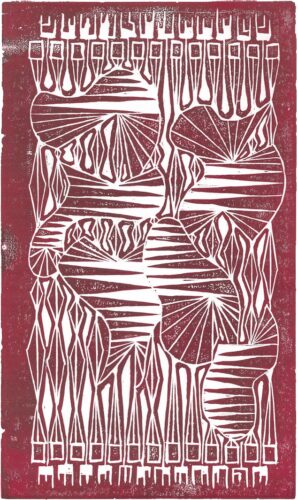AT THE END OF THE YARD
Because
after much meandering
I’ve determined the world is
that new bicycle,
its chrome menace:
Tour de France,
Giro d’Italia,
that hill.
And because
we laid out the table
in the garden,
far too much food, in particular,
the rabbit and grapefruit.
And because
down this same street
we’d once been so hungry.
The wine was all we had left.
Everything had burned, as you know.
But especially because
the roster pinned to that door
made no mention
of fame, defeat.
The brittle excuses
we’d claim for our own.
Because that day
the orange monarchs came back,
then left.
And the night following,
when we walked to the strip mall
green mantids swarmed the shimmering tarmac.
Through the dripping mist
the tall lights flickered and hummed.
And because
in spite of ourselves
also we foresaw
our books mouldering.
And in them, written,
our hunger tomorrow, again,
fierce.
And everyone had drunk too much.
And everyone began to shout.
And our ears began to bleed, remembering
the hiss-thump hiss-thump of the cannons.
And even after the peace
we never quite found silence again.
Nor those hours, somehow no longer.
And because—I insist on this:
That carnivorous thing,
after so many lives turned,
leans still
at the end of the yard,
against the old shed,
almost untried.
LETTER FROM THE CITIZENS
& SLAVES OF A MINOR DOMINION
Don’t imagine for a minute, Xerxes,
that war will be avoided.
Enjoy them while you can,
your potted jasmines, your peacock garden.
We lie to ourselves first of all,
and most earnestly.
But the evidence swims
with every crumpled bottle bobbing in the ocean.
The cindered forests, the tar-stuck geese,
our cankered lungs, our graveyards.
The worms are shouting now,
stopping your ears won’t silence them.
Hegel and Freud agreed on little,
but this they knew:
Nostalgia is not a legitimate emotion.
Our sons in your zinc mines,
we consider them dead.
Our sons carrying your spears and muskets,
we’ll slit their throats.
Our daughters in those dark cities
ringed with yellowed lights and snow.
Our daughters sweating in harbourfront brothels,
we consider them lost.
The bill is longer than Penelope’s shroud,
longer even than Hano’s circumnavigation.
And the worms are shouting.
Don’t dream that because your gifts, Xerxes,
were not returned—
Don’t imagine it for a minute.
Though we know who will pay,
though we know.
About the artist:
Leonor Vulpe Albari is a painter and print-maker whose work has been featured on several book covers, as well as in Montréal Serai, which published a detail from her painting, Cut Fig, in its January 2022 issue. After studying at Carleton University and Maastricht University, she earned a degree in law at Oxford’s Harris Manchester College. She now lives in London, England, where she continues to develop her art while completing her training as a lawyer.

